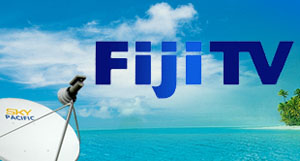
ANALYSIS: AUCKLAND (Pacific Media Watch): In the aftermath to the lifting of the Public Emergency Regulations (PER) in Fiji in January, media organisations have been peering out from their bunkers and stepping around like frazzled soldiers not too sure whether the war is quite over yet.
With new "freedoms", such as military personnel no longer setting up camp outside the newsroom, also comes uncertainty.
One editor told Pacific Media Watch he praised the lifting of the PER but conceded the Media Industry Development Decree, imposed by the regime in 2010, is not a good thing to have “hanging over your head”.
It enforces tough fines for organisations and individual journalists who have no right to appeal any decisions against them.
For the last few months, journalists have been going about their job not too sure of what exactly they could get away with and where the line might be drawn.
Last week in Fiji, it seems the inevitable happened. After months of more "free and open reporting", where newspapers and websites could run views opposing the military regime with the blessing of the Ministry of Information, Fiji TV appear to have been the first to find out where that line is.
'Opposition voices'
On May 23, Fiji TV ran a news story with interviews with deposed prime minister Laisenia Qarase and the Fiji Labour Party leader Mahendra Chaudhry (who was the deposed PM in the 2000 George Speight attempted coup). The interviews were in response to comments by the Constitution Commissioner, Taufa Vakatale, who blamed previous politicians for what she said was Fiji’s current situation.
Two days later, Fiji TV’s board chairman, Isoa Kaloumaira had a meeting with the Minister for Communications, Aiyaz Sayed-Khaiyum, who is also the Attorney-General, the Minister for Justice, Anti-Corruption, Public Enterprises, Industry, Investment and Tourism.
The prominent and controversial anti-government blog Coup 4.5 said Kaloumaira was “summoned” by Sayed-Khaiyum but Fiji TV confirmed in a statement there was at the very least a meeting to “discuss various issues of concern with respect to news reporting by Fiji TV”.
At the heart of the matter with Fiji TV is that its 12-year broadcasting licence is up for renewal on June 30.
The Coup 4.5 report was picked up by one of the region's media advocacy groups, Pacific Freedom Forum, and its partner International Federation of Journalists (IFJ), which claimed an inside source from Fiji TV confirmed the Attorney-General had threatened not to renew the licence.
But Kaloumaira responded with a statement through the South Pacific Stock Exchange on June 13 that Sayed-Khaiyum had written to Fiji TV on 14 October 2011 pledging the renewal of their licence, and for another 12 years.
Confusing statements
But the very next day, last Thursday, Fiji TV released another statement, which included an ambiguous and cautious reference to the alleged drama, being careful not to mention any individual or group: "The initial reports that have come out regarding Fiji TV in the international media and the politicisation of this issue by political parties and politicians, does not have any merit.
“The Fiji TV board wishes to categorically state that it does not wish to be part or involved in anybody else's agenda.”
Was this a reference to the anonymous blog Coup 4.5 and PFF reports, calling them groups with an agenda?
Two days later, the regime’s permanent secretary of information Sharon Smith-Johns blasted the reports as “untrue” and "rubbish" on Radio Australia and said: “There is no self-censorship going on whatsoever”.
But what to make of Fiji TV’s ambiguous statement and their reticence to even admit to other media that there had in fact been a meeting? During her interview, Smith-Johns didn’t want to answer Bruce Hill’s question of why Fiji TV would be so coy if a climate of self-censorship didn’t exist.
Smith-Johns also said she wasn’t at the meeting and “I am not going to go into the details of the meeting or the story behind it”, perhaps a slip of the tongue that there was in fact quite a story.
But there was even more confusion from Fiji TV’s statement on Thursday. It vowed to “overcome any practices” contrary to the spirit and substance of the Media Code of Ethics and Practice in the decree.
"Fiji TV acknowledges government’s position on the need for balanced and fair reporting of news by all media organisation, including Fiji TV.
"Fiji TV will ensure that it will improve its news."
They sound like comments from a reprimanded sportsperson after a dressing down.
And after confirming the day before that the licence had been assured, Kaloumaira finished with: “Fiji TV has applied for the renewal and we await the minister’s decision.”
Even Smith-Johns’ interview on the same day has her assuring Radio Australia the licence has been awarded.
Self-censorship still threat
From my week in Fiji recently, self-censorship is clearly a battle yet to be overcome. Young cadets at prominent newspapers have worked only under a climate of censorship since 2009 and have no experience of how a journalist operates with full freedom of the press.
And it’s not only journalists who self-censor, but key figures in public life who comment on issues.
Still, I was surprised at the adapting attitudes of the Ministry of Information. In the first week of May, newspapers covered World Press Freedom Day events and had articles ranging from harsh criticism of Sayed-Khaiyum, to the Ministry’s own arguments that media organisations need to respect journalists and pay them better.
Who knows why Fiji TV is being inconsistent and coy. But what's evident is that there’s more than one media manager in Fiji who is happy enough just to be in the job and cautious not to cause a stir.
Smith-Johns is right - people should visit Fiji first and see things for themselves. If you do, you will find two things - an improving media climate, but also that all is not as clear as some in the government and the media would have it seem.
Alex Perrottet is the contributing editor of Pacific Media Watch, and was in Fiji in May to attend the World Press Freedom Day events with the assistance of the Pacific Media Centre and the University of the South Pacific.
This work is licensed under a Creative Commons Attribution-NonCommercial 3.0 New Zealand Licence.




